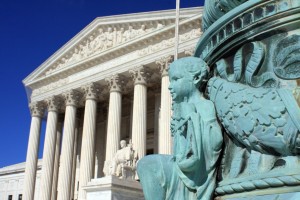** Second Circuit Affirms Denial of Class Certification in Low Ball Settlement of New York Fair Debt Collection Suit **
By: Brent E. Johnson
A recent Second Circuit decision highlights the thorny issues involved in a “low dollar” class settlement. In Gallego v. Northland Group Inc. No. 15-1666-CV (2d Cir. Feb. 22, 2016), Gallego, along with about 100,000 New York residents, received a rather perky dunning letter from defendant collection agency Northland in January 2014 declaring, “IT’S A NEW YEAR WITH NEW OPPORTUNITIES!” and inviting Gallego to settle his debt with a department store credit card company. Rather than heralding the new year by settling the claim, Gallego rang it in by bringing a putative class action lawsuit against Northland under the Fair Debt Collection Practices Act (“FDCPA”). The substance of the claim was dubious – attempting to bootstrap a technical violation of the New York City Administrative Code (not providing the name of an individual to contact) into a false representation or unfair or unconscionable means under the FDCPA.
Northland, apparently calculating that it was cheaper to settle than fight, entered into a proposed settlement with Gallego. In addition to an attorneys’ fee cap of $35,000, Northland agreed to establish a settlement fund of $17,500 – approximately 1% of the net worth liability limit under the FDCPA. Gallego would receive a $1,000 incentive fee and the remaining $16,500 would be distributed pro rata to class members who made a claim. The proposed settlement dissolved if there were 50 opt outs – who could then bring individual actions under the FDCPA with statutory damages of $1,000 each plus attorney fees.
The district court denied class certification under Rule 23(b)(3) superiority observing that class members would receive 16.5 cents each while, if they brought individual actions, they might each recover $1,000 statutory damages and attorney fees. Gallego v. Northland Group Inc. 102 F.Supp.3d 506 (S.D.N.Y 2015). The court opined that the prospects of a recovery measured in pennies would likely result in “mass indifference” among most class members who would be deterred from filing individual lawsuits or joining the class. This could result in a few class members reaping a windfall from the settlement. “The prospects of mass indifference, a few profiteers, and a quick fee to clever lawyers is hardly the intended outcome for Rule 23 class actions.”
On appeal, the Second Circuit agreed that the district court did not abuse its discretion by denying certification. Gallego argued that it was unlikely that all 100,000 class members would make claims so the individual class member recovery would be higher (a particularly noteworthy admission given that because Northland sent the offending letters in the first place – individual notice was practical and would likely be effective in this case) – basically agreeing with the district court that there would be “mass indifference” to the settlement. The Court of Appeals retorted, “An expected low participation rate is hardly a selling point for a proposed classwide settlement.” The Second Circuit went even further, determining that the district court would have been right in doubting that Gallego would “fairly and adequately protect the interests of the class,” as required by Rule 23(a)(4) pointing out that the proposed settlement included a release – not only of class members’ FDCPA claims – but all “claims arising out of any of the facts, events, occurrences, acts or omissions complained of in the Lawsuit, or other related matters . . . relating to letters sent to them that are substantially similar to the letter” received by Gallego.
It is important to reiterate that the FDCPA provides for an individual right of action with statutory damages as well as attorney fees, which are often absent from general consumer protection statutes. This made it easy for the district court to find that the class action lawsuit was not a superior method for resolving the dispute given the proposed settlement value. Nevertheless, the district court’s “a plague on both your houses” conclusion on class certification serves up a cautionary note: “Because I find that certifying a class would do little more than turn [Nortland’s] settlement with Mr. Gallego into a general release of liability from all similarly situated plaintiffs at minimal extra cost while furthering a cottage industry among enterprising lawyers, class certification is denied.”

